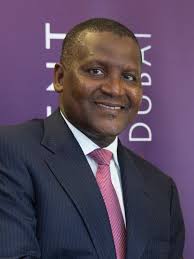By NIYI JACOBS
Nigeria’s downstream oil sector is on edge following the Dangote Refinery’s announcement that it will begin nationwide distribution of petrol and diesel from August 15. The move, which bypasses traditional marketers and involves direct-to-customer supply using 4,000 Compressed Natural Gas (CNG) trucks, has ignited fears of a creeping monopoly that could displace thousands of players and push fuel prices even higher.
Industry leaders say the development marks a turning point in the nation’s energy market, but not necessarily for the better.
“Dangote is fast becoming a one-man fuel market,” said Billy Gillis-Harry, President of the Petroleum Products Retail Outlets Owners Association of Nigeria (PETROAN). “What we’re seeing is a full vertical takeover—from refining to storage to distribution. That’s dangerous for competition, and even worse for consumers.”
Gillis-Harry warned that many independent petrol stations and depot owners, who have invested billions in infrastructure, may soon be forced out of business. With just one dominant supplier controlling access to fuel, he fears that price hikes and supply restrictions could become the new normal.
“It’s not just the marketers who will suffer,” he said. “Nigerians will ultimately bear the cost if we allow a single player to dominate the entire value chain. That’s not deregulation—it’s market capture.”
While groups like PETROAN and DAPPMAN have sounded the alarm, the Independent Petroleum Marketers Association of Nigeria (IPMAN) appears less concerned. In an interview, IPMAN spokesperson Chinedu Ukadike welcomed the refinery’s distribution rollout, insisting it doesn’t threaten its members.
“It’s a welcome development,” Ukadike said. “Dangote has said he is not interested in retailing. As long as the product is available and accessible, IPMAN will continue to serve our communities.”
But other analysts and marketers are not convinced. According to insiders, many depot operators have begun experiencing delays in product loading and reduced allocation since Dangote started controlling supply channels. Some marketers now fear they may be forced to buy fuel at a premium from Dangote-linked networks or risk being shut out entirely.
“If this trend continues, most of us will either shut down or operate at a loss,” said a Lagos-based depot owner who requested anonymity. “We’re already seeing signs of exclusion in key logistics chains.”
The growing monopoly concerns are coming at a time when fuel prices remain stubbornly high. Despite a drop in global crude oil prices to around $60 per barrel, petrol still sells for between ₦875 and ₦910 per litre in major cities like Lagos and Abuja.
Festus Osifo, President of the Petroleum and Natural Gas Senior Staff Association of Nigeria (PENGASSAN), blames the disparity on price manipulation and regulatory failure.
“Based on PLATTS pricing, petrol should be around ₦700–₦750 per litre,” Osifo said. “What we have now is profiteering by marketers and a complete lack of regulatory oversight. NMDPRA must step in to enforce transparency.”
He also accused successive governments of politicizing refinery rehabilitation and ignoring long-term structural reforms, such as adopting the Nigeria LNG model for state-owned refineries—where the government owns 49% and private investors hold 51%.
As tensions mount, industry groups are urging the federal government to invoke the anti-monopoly provisions in the Petroleum Industry Act (PIA) and ensure no single entity dominates the market.
“Liberalization should not translate to privatized monopoly,” said Gillis-Harry. “What Nigerians need is a fair and open fuel market, not a single gatekeeper.”
Unless regulators act swiftly to ensure a level playing field, experts warn, Nigeria could slip back into the inefficiencies of the subsidy era—only this time, under a private monopoly.
“This isn’t just a pricing issue,” one downstream expert noted. “It’s about who controls Nigeria’s energy future—and whether














